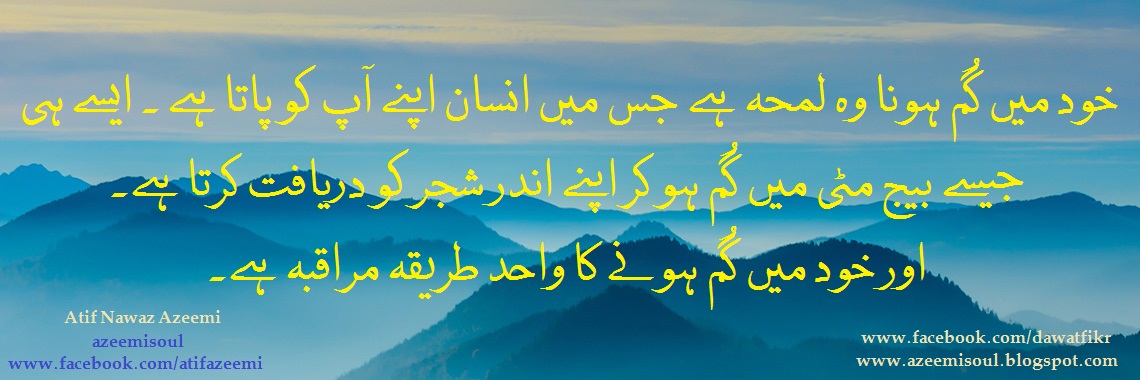Published in "The Nation" Dated 24-04-2017
http://nation.com.pk/E-Paper/Lahore/2017-04-24/page-6/detail-4
China and Pakistan adhere to two completely different socio-political systems, languages, customs, cultures and religions. The exemplary government-to-government relations and diplomatic ties were never impeded despite these glaring differences. Yet, Sino-Pakistan cultural exchanges do not complement these ties. It is evident from the fact that there are only 3 Confucius centers in Pakistan, which are in Islamabad only. But now when Beijing has launched China-Pakistan Economic Corridor in Pakistan, it needs to enhance cultural understanding. This only underlines the necessity of finding cultural similarities and shared identities based on the principles of constructivism.
It is interesting to analyse that how many similarities are found between Sufism in Pakistan and Taoism in China. The congruity of these two philosophies is a point of intellectual synchronisation between the two countries.
Father of Taoism, Lao Zhou, promoted passive behavior and harmony within one’s own self and nature. Taoism is acceptance of life, following one’s breath to find peace and practicing meditation for inner peace and harmony. Dao is the path to embrace wonder of life and joy in living. It is the acceptance of one’s own self, others and nature. It is the path to enlightenment and the practice of trusting one’s own intuitions. Therefore, to follow the Dao is to recognise the inner harmony and balance in all living things and systems.
These distinct features of Taoism are in conformity with the beliefs and practices of Sufi orders in Pakistan.
Pakistan inherited a culture of Sufism which always lived up to the principles of harmony, inner peace and eternal love. Sufis embraced people irrespective of their beliefs, norms and regions. All Sufi orders spread the message of brotherhood and humanity. Pakistani Sufi poet, Baba Bulhey Shah wrote extensively on avoiding labels. He did away with labels and worked for humanity only. Meditation has been a core practice in Sufi practices in one form or the other. A great Sufi sage, Muhammad Azeem Barkhia’s spiritual teachings of considering pleasure and pain as one and coming to the reality above all rightdoing and wrongdoing resonates with Ying-Yang theory of Taoism. Pakistani spiritual scholar of international repute, Khawaja Shamsuddin Azeemi has established a chain of 53 meditation halls worldwide. He has also been celebrating Adam Day annually to promote harmony in mankind. A genre of music, Qwali, is sung in nearly all Sufi orders. It is relatable to the chanting and instrumentations the Taoist priests use to achieve Dao. Sultan Bhao laid special emphasis upon breathing which he thought was the means to connecting to advanced forms of reality.
If this shared bond is rejuvenated, Chinese and Pakistani nation can be brought to the point of a shared cultural identity.
In Defense and Strategic Studies, Sun Zhou is taught at the universities of Pakistan. It sets a precedence for teaching Sufi traditions in both the nations. Extensive research should be undertaken to find common points and translate the Sufi sages of both the nations. Azeemi Sufi Order in Pakistan publishes a journal-cum-magazine, Qalander Shaoor (Neutral Thinking), in which it endeavours to find gleams of Sufism in civilisations all over the world, China being the one. This Sufi order also translates its publications in international languages including Chinese. Chinese government can do the same to familiarise its sages with Pakistani people and institutionalise this bond of shared identity. These studies need to be taught in school, college and university books. Special importance should be given to Sufi poetry, prose and music in holding bilateral cultural exchanges. Chinese embassy should hold these events of promoting harmony such as Adam Day in Pakistan and establish Pak-China meditation centers. More Confucius centers should be opened as they are a means to promote shared eastern values.
Utilising the force of Sufism in foreign policy and public diplomacy is not an entirely new idea. Sufism, in fact, is based on universal values which transcend times and boundaries and way more durable than economic pacts and strategic alliances. This was the reason that, in 2003, Nixon Centre held a conference on the role of Sufism in American foreign policy. Being a civilization rich in Sufi traditions, China only needs to rejuvenate this bond, which already exists within its cultural matrix, to develop a stronger people-to-people bond.
The writer is a researcher at the Institute of Strategic Studies, Islamabad.



